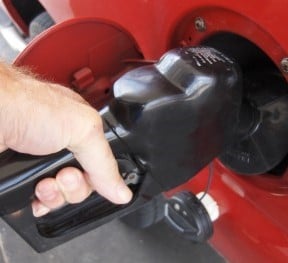What to do When Your Diesel Fuel Starts to Gel
Are you gellin'? No, this isn't a Dr. Scholl's ad, but rather a question all diesel fuel users should be asking themselves during the cold winter...
2 min read
Erik Bjornstad : Sep 11 2014
For many of us, cars are like a "black box" - we know that they work but we don't know how they work. That means we don't know whether to be confident or afraid when we see something unexpected with our car. Or we hear a strange noise that we haven't heard before, but it sounds like the whrrrrrrring sound our Aunt Betty's car made right before it gave up the ghost.
How do you know what’s serious and what’s not? What are the signs you should pull over immediately? Dropping your last French fry on the floor while driving on the highway doesn’t really fall into this category. We mean, what are the car-related events or circumstances that you really should take seriously? Here are some of the more important pitfalls that might eventually happen to you. When one of these crosses your path, the best advice is to pull over safely and get help.
Your car isn’t supposed to make any loud or strange noises. And it could be nothing. That sudden loud bang you heard could have been just you running over an unexploded can of soda on the road. Or it could mean your engine just threw a rod. Exploding cans of soda are ok. Throwing a rod (or a sparkplug or cracking a head gasket) are definitely not ok. Pull over and see if anything is apparently wrong.
Visibility is essential to good, safe driving. This is especially true on the highway, where driving at freeway speeds means it will take you over 300 feet of distance to stop, should you need to. Not being able to see, obviously, means you may not know when you have to stop. And that’s bad for the people or things in front of you. Sudden loss of visibility can result from anything from bad windshield wipers to fog to not clearing off the windshield when it’s snowy. You have to see to drive. If you can’t see adequately for some reason, pull over and keep your car in one piece.
Either one of those is serious business. Loss of oil pressure will wreck your engine in minutes or seconds. Letting your engine overheat, maybe from a sudden loss of coolant, will warp and crack your cylinder heads and gasket. And that will kill your engine stone dead. The oil light and the temperature light are put there to warn you of impending financial danger. As in “your wallet’s about to be $8,000 lighter because you have to get a new engine”.
What do we mean here? You can tell how well your car is handling from how it behaves with the steering wheel. When something serious happens, many times you can feel it there. You blow a tire. Part of your wheel is about to fall off. One of the multiple pieces in the car’s front end that links the turning wheels to the steering wheel fails.
Many times you have warning of impending danger here because the steering wheel unexpectedly wobbles or pulls in one direction. If it’s a little wobble, you could rationalize it as nothing to worry about. But if you’re wrong as to the seriousness of it, you could be sorry.
The cooling system is supposed to be a self-contained unit. Seeing steam typically means coolant is escaping somewhere. Not all leaks are the same, however. Slow leaks aren’t seriously but eventually become big leaks. And big leaks are serious because your engine can quickly overheat and become permanently damaged. You may not always know the difference between a slow and a quick leak in your specific car. So now would be an appropriate time to exercise caution and pull over.
And remember, don’t ever uncap a hot radiator. Unless you want to go to the burn unit.
Are you gellin'? No, this isn't a Dr. Scholl's ad, but rather a question all diesel fuel users should be asking themselves during the cold winter...

Fuel stabilizers are big business for diesel fuel, but may not appear to be so important in gasoline. But gasoline is still petroleum and still...
With the summer months approaching, your car or truck AC system becomes a priority. It has to work well in the hot weather. This is especially true...